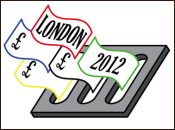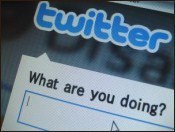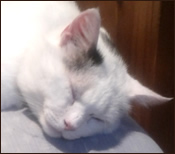July 11, 2012
 The Great Depression and the rise of Fascism aside, the 1930’s was a golden era in many respects. For example, the literary output was first rate: Orwell’s talent was in full bloom, Steinbeck’s “Grapes of Wrath” flew off the bookstore shelves. Indeed, according to the New York Times, “The Grapes of Wrath” was the best selling book of 1939 and 430,000 copies were printed by February 1940. That same year, it was adapted into a powerful and memorable film starring Henry Fonda: this movie won two Academy Awards in 1941.
The Great Depression and the rise of Fascism aside, the 1930’s was a golden era in many respects. For example, the literary output was first rate: Orwell’s talent was in full bloom, Steinbeck’s “Grapes of Wrath” flew off the bookstore shelves. Indeed, according to the New York Times, “The Grapes of Wrath” was the best selling book of 1939 and 430,000 copies were printed by February 1940. That same year, it was adapted into a powerful and memorable film starring Henry Fonda: this movie won two Academy Awards in 1941.
More than 70 years on, and trapped in a pernicious recession which resonates with disturbing echoes of Steinbeck’s time, we seem unable to produce cultural riches that possess the same lustre. I look on Twitter, I see discussions online and overhear them elsewhere: the literary work being discussed most of all these days is “Fifty Shades of Grey” by E. L. James.
For those who have heard of this book but are unfamiliar with the plot, “Fifty Shades of Grey” is a tale of sexual obsession and sado-masochism. The main character is a deranged billionaire named Christian Grey who proceeds to deflower and debase a 21 year old virgin and “total babe” named Ana Steele. In other words, it’s cheap, tawdry pornography which the average bookstore in 1939 would not have deigned to put on its shelves. Indeed, the concept is riddled with clichés: the scandalous man of means is hardly new, the dewy eyed young woman who has her innocence robbed from her is an idea that goes back to Hogarth’s “A Harlot’s Progress”. Yet, this is the work that is being bought in such vast quantities that it makes the Grapes of Wrath’s once impressive figures seem a mere pittance by comparison.
Why? My other half pointed out that its popularity could be rooted in the attractions of simple escapism: we need a break from the humdrum and exotic and salacious tales help release us from the mundane and often painful realities of living in a diminished era. She also suggested that it could have something to do with an absence of Thirties’ stoicism: in the past, people were more willing to accept fate and look it in the eye. Thanks to consumerism and marketing, we now all believe “because you’re worth it” that we should live the lives of celebrities. We are all geniuses too, why aren’t we recognised for it? Face the grimy realities of living in a 2 up, 2 down semi in Basildon or Trenton, New Jersey? Unlikely: much better to see oneself as a “total babe” or a billionaire who can get away with anything. After all, this better suits the self-image we have been promised, sold and for which we are trapped into a terrible repayment.
But look back at “The Grapes of Wrath”: it is sublime precisely because it holds up a mirror to ordinary human beings and shows their real virtues and faults, both their kindness and propensity to violence, their ignorance and enduring wisdom. Fifty Shades does none of this; furthermore, it brings the spectre of social decline to the fore. Shock entertainment and its need to resort to ever greater stimuli can signify that a society is cracking. The spectacles at the Roman Colosseum grew ever more shocking as the public grew inured and the polity creaked. Two gladiators fighting each other to death wasn’t sufficient: the Emperor Trajan apparently celebrated his Dacian victories in 108 AD by employing 10,000 gladiators. Wild beasts tore each other and people to shreds merely to amuse; Trajan utilised 11,000 animals to supplement the gladiators. The Victorian author Charlotte Mary Yonge captured the spirit of this accumulative degeneration in her “Book of Golden Deeds”, published in 1864:
Sacred vestals, tender mothers, fat, good-humored senators, all thought it fair play, and were equally pitiless in the strange frenzy for exciting scenes to which they gave themselves up, when they mounted the stone stairs of the Coliseum.
Considering this history, a young girl being beaten by a sadistic billionaire to achieve perverted ends may seem mild, yet it is not tame in comparison to what we previously considered art.
It’s also not particularly exciting. The true thrill and beauty of sexual relations need not be solely contained in its culmination, but in the promise of it, the point at which all outcomes are possible. Furthermore, it need not be considered the sole preserve of the supremely rich or particularly alluring. It’s plausible to have a potentially erotic scenario that occurs between people who are not necessarily attractive in a setting that is normally considered dull.
 Picture a firm of accountants somewhere in a Northern English city: the building is from the 1970’s, it’s box-shaped, with dark grey concrete and perfectly rectangular windows. The panes haven’t been replaced for some time, and many years of being pelted by city rainwater prevent them from ever glistening again. The grey skies which prevail mean that shadows dominate the narrow street on which the edifice stands. There is a hint of diesel exhaust in the air; pools from early morning rainfall have accumulated on the pavement. Inside, the offices are open plan: the desks are made of chipboard, fronted by peeling brown veneer. There is an aroma of instant coffee and milky tea. Focus, if you will, on two accountants, one male, one female, sitting with their desks facing each other. The man is in his late 40’s and wearing an ill-fitting dark grey suit from Marks and Spencer, his shoulders stooped and slumped from many years of leaning over his computer. He is negotating his surrender to baldness; his blonde and grey hair is cropped closely and rings a growing bare patch on the top of his head. His complexion is pasty; his brown eyes are a stark contrast to his pale visage. His gold wire frame glasses slide down his nose as he dips his head to look at a set of figures. He has a tendency to stroke his thick moustache with the length of his right index finger as he examines the numbers. He has lost weight recently: he also twirls his wedding ring around and around in endless loops. A pity that his wife didn’t live to see him make such progress, if consuming only packages of Super Noodles as an evening repast can be called that. He doesn’t see that his gold and red patterned tie, the only spot of colour in his wardrobe, has a slight oil stain from some chips he consumed for lunch.
Picture a firm of accountants somewhere in a Northern English city: the building is from the 1970’s, it’s box-shaped, with dark grey concrete and perfectly rectangular windows. The panes haven’t been replaced for some time, and many years of being pelted by city rainwater prevent them from ever glistening again. The grey skies which prevail mean that shadows dominate the narrow street on which the edifice stands. There is a hint of diesel exhaust in the air; pools from early morning rainfall have accumulated on the pavement. Inside, the offices are open plan: the desks are made of chipboard, fronted by peeling brown veneer. There is an aroma of instant coffee and milky tea. Focus, if you will, on two accountants, one male, one female, sitting with their desks facing each other. The man is in his late 40’s and wearing an ill-fitting dark grey suit from Marks and Spencer, his shoulders stooped and slumped from many years of leaning over his computer. He is negotating his surrender to baldness; his blonde and grey hair is cropped closely and rings a growing bare patch on the top of his head. His complexion is pasty; his brown eyes are a stark contrast to his pale visage. His gold wire frame glasses slide down his nose as he dips his head to look at a set of figures. He has a tendency to stroke his thick moustache with the length of his right index finger as he examines the numbers. He has lost weight recently: he also twirls his wedding ring around and around in endless loops. A pity that his wife didn’t live to see him make such progress, if consuming only packages of Super Noodles as an evening repast can be called that. He doesn’t see that his gold and red patterned tie, the only spot of colour in his wardrobe, has a slight oil stain from some chips he consumed for lunch.
However, his colleague at the desk opposite notices. She too is in her late 40’s. She has dyed her hair repeatedly with products bought in the beauty aisle at Tesco, going for blonde highlights in her auburn hair which are never quite ash enough. She too wears grey, a smart, better fitting suit, which covers her somewhat plump and ample figure. She wears glasses as well, her blue eyes having diminished in sight due to many long hours spent bent over ledgers, both electronic and paper. Her glasses however, have a thick black frame. She presses Page Down repeatedly on her keyboard trying to get to the pertinent information. Her thick lips pucker slightly as she finds an incorrect figure. She looks across to her colleague; she sees he is locked in concentration. The chips at lunch left a mark, however. She has a packet of wipes in her drawer, they say they’re good for spills and stains on their bright green wrapper: perhaps she ought to offer one?
Now envisage a boss coming up to them; he is completely bald, and his head shines as brightly as his smile. His shirt is white with a thin red pinstripe. He is jolly and has the girth to go with it, a victim of too many sandwiches consumed at his desk.
“Nigel, Nora,” he says in a jovial tone. Both Nigel and Nora look up.
“Come into my office,” he beckons. They cast a quick glance at each other and stand up. This is not unfamiliar to them as they’ve often been tasked with working together on some tricky assignment. Nigel adjusts his shoulders back and thinks of the time when they had to wind up a company whose director absconded with a substantial amount of money. Nora had traced where the money had gone. The police had done the rest. He recalls how she dressed when she had to go to court: was it the same grey suit she’s wearing now? No, it was with a faint pinstripe, and the skirt was a bit higher, stopping at just below the knee. Grey stockings, yes. She wore grey stockings which clung to the curve of her calves, the seam forming a perfect outline.
Nigel’s breath catches slightly.
Nora thinks of another case when Nigel was working late into the night. She had to get home to Geoff and the kids who all had runny noses and fevers and so he stayed behind long after the sun set and the main office lights had been turned off. As she wiped small faces and made chicken soup, she thought of him sitting there, desk lamp switched on, computer screen glowing, that same grey suit jacket still slumped on his shoulders. He wears that suit rather a lot, she muses. Or does he have multiples of the same one? She doesn’t know how to ask.
They go into the boss’ office and sit at the two blue fabric and aluminium office chairs positioned in front of their superior’s desk. The boss has a red cricket ball sitting next to the computer monitor and a small statuette of a cricketer in what looks like bronze, swinging a bat. A faded picture of a county cricket side, lovingly cut out of a local newspaper is Sellotaped to wall behind him. The boss sits in a black leather chair which is set quite low, so the desk seems bigger than what it actually is.
“N squared,” the boss says, smiling. His little joke. Nigel and Nora working together: “N squared,” the boss thinks. Nigel and Nora both suppress the urge to shrug.
“I’ve got a big job for you to do,” the boss continues. He then speaks about another company going into liquidation due to the recession and that its affairs need to be wound up. Nigel tries to suppress a bitter taste in his mouth; he wonders if butchers feel something similar in an abattoir when they see the next animal that is to be killed and cut up. Nora hangs on every word waiting for the name of the company; Geoff says that his job is in trouble and that she is probably going to have to pick up the slack for him. It doesn’t matter that much, he was earning minimum wage anyway and barely able to help with the grocery bills. The big blue ceramic jar they keep on top of the refrigerator to hold spare change has long been empty anyway. Nevertheless, the thought of Geoff sitting around all day wearing that tired taupe cotton bathrobe and watching morning television causes her stomach to tighten. She looks at Nigel; he seems calm.
“You probably want to know the name of the firm,” the boss continues.
Nigel nods. “It’s Rothglen Limited.”
Nora exhales quietly. Not this time.
“Is she OK,” Nigel wonders. Nora bears a lot of signs of worry: he sees the bags under her eyes, the way her hands shake slightly whenever she takes a cup of tea or coffee into her hand. There’s a slight smudge of pale peach face makeup on her starched white collar. She’s got a bit of a cold. Nevertheless, the perfume she’s wearing is as pleasant as ever: citrus, somewhat sharp, it doesn’t smell expensive, perhaps something picked up on sale at Boots around the corner, but it mixes well with her body chemistry.
“No, no,” he thinks, “don’t think about that.”
He studied chemistry while at university and thinks of elements interacting in a test tube, bubbling and fizzing. He tries not to, but looks out of the corner of his eye at her profile. The curve of her neck is really quite beautiful, her hair rather delicately frames it.
No, no, don’t think about that.
Nora wonders, “Is he looking at me?” The boss is nattering on, his jowls quivering as he speaks, his words trying to carry an elegance that they cannot bear. Nigel could be elegant however. What was it that he said in her last birthday card? Something about familarity breeding contempt most of the time, but when it came to working with her, the direct opposite was the truth. The handwriting was slanted, shaky, not the same confident swoops and curves he used to sign off official letters.
She turns her eyes to cast a glance at him. Nigel switches his gaze back to the boss.
Hmm, he was looking, she thinks. The possibility that he cares for her has turned over in her mind a few times. No, he’s not conventionally attractive. For God’s sake would he sit up straight and stop bending over his computer. But she guesses that since his wife died there has been no one to tell him that.
Nigel swallows hard. Damn, the boss is impressed by the sound of his own voice. The brief has been explained; the boss is trying to just make his own superiority and brilliance clear. Nigel twists slightly in his seat and sighs. When Mary died, the bed became quite cold. He awoke in the morning to only his own warmth and the sound of Radio 4 echoing “Farming Today” in the darkness. The air in the house is musty. He hasn’t bothered to take down the textured wallpaper. The television in the bedroom was broken; he hasn’t replaced it. The last time he recalled watching it was after he and Mary had made love and they watched a film as her head lay on his chest, her breathing first in gasps and then slowly calming down. The film was forgettable; their scents combined, heat rising from their embrace, her shut eyes, shaven head and smile touching her coral pink lips were not. Oh God.
Nigel chokes. Nora notices. His hands are in tight fists on his knees. She’s seen him like this before: it happens generally when work’s pace diminishes. He must be remembering. His eyes are glassy. Can’t the boss stop now?
“I have every confidence in your ability to do this,” the boss continues, “N squared, you’re the best team for the job.”
No, he’s not done. Should she? As she looks, she can see a slight tear forming at the corner of his eye. She looks at the boss. No, he won’t see; he’s too busy talking about himself.
Yes. She reaches out her hand and places it on top of Nigel’s.
The gesture is a shock. But Nigel has touched Nora before; they’ve got a little habit of giving each other a handshake after a job well done. “Well done, Nigel,” she says, a bright smile on her face. “Well done, Nora,” he replies, smiling in kind. He thinks he hugged her once at the office Christmas party, he was very drunk on cheap ASDA Cava; he recalls her body locking into his, the momentary warmth, the feeling of comfort, an awkward pause, then the turn away.
How does she know what I’m thinking, he wonders. Her grip tightens.
“Should I?”, he wonders. What about Geoff and the kids and her life and all the permutations and promises? Is this crossing some sort of boundary?
Thought slips. He turns his hand over and claps hers.
She first wonders if it’s a gentle admonition. He then spreads his fingers open, hers interlocking with his, the palms touching.
No, it’s not a rebuke. They both tighten their grip.
If one pulls back from this scene, the larger picture is as follows: two accountants, one a widower, one in a marriage that is stumbling but not terribly unhappy, care about each other and possess all the vital ingredients for a passion. In a conventional sense, they are not attractive, but they are attracted to each other and potentially this makes their passion work. I suggest this is how most romances develop, and thus is much more relatable than dreams of some hopelessly glamorous or rich partner. Furthermore, by making this more realistic, themes of our era have a chance to seep in: for example, in response to the mention of a firm being liquidated, Nigel’s thought is that he is a mere butcher in the abattoir of the economy. But this isn’t Fifty Shades of Grey; we don’t want to talk about this. We want to be seen to be dazzling, not ordinary, rather than see the dazzling in the ordinary. I dare say, we can do better, if only our thoughts can run to the wonderful that can be found even the humblest of settings.


 Every Olympics contains elements of both triumph and disaster. The 1972 Olympics in Munich were notable for both a terrible terrorist incident involving the Israeli weightlifting team and Mark Spitz’s accumulation of seven gold medals, a feat not surpassed for over 30 years. The 1976 Olympics in Montreal are remembered both for Bruce Jenner’s world record setting triumph in the decathalon and for debts which weren’t finally paid off until 2006. Even the 2008 Olympics in Beijing, which ran like clockwork, required the forced evictions of up to a million people. What the calamities have in common is that they speak of the weaknesses of the host nation: Germany in 1972 was still coming to terms with the difficult legacy of the Holocaust, Montreal’s government was profligate, the Chinese government still doesn’t give a hoot about human rights. We perhaps should be thankful then for the forthcoming Olympics, as it shows the problems of modern Britain in stark relief. While we rightly damn the difficulties and expense, its lasting legacy may be to present what is in most dire need of correction.
Every Olympics contains elements of both triumph and disaster. The 1972 Olympics in Munich were notable for both a terrible terrorist incident involving the Israeli weightlifting team and Mark Spitz’s accumulation of seven gold medals, a feat not surpassed for over 30 years. The 1976 Olympics in Montreal are remembered both for Bruce Jenner’s world record setting triumph in the decathalon and for debts which weren’t finally paid off until 2006. Even the 2008 Olympics in Beijing, which ran like clockwork, required the forced evictions of up to a million people. What the calamities have in common is that they speak of the weaknesses of the host nation: Germany in 1972 was still coming to terms with the difficult legacy of the Holocaust, Montreal’s government was profligate, the Chinese government still doesn’t give a hoot about human rights. We perhaps should be thankful then for the forthcoming Olympics, as it shows the problems of modern Britain in stark relief. While we rightly damn the difficulties and expense, its lasting legacy may be to present what is in most dire need of correction. The Games also highlight the awful state of Britain’s transport infrastructure; leaving aside the impending disaster of an overburdened Tube network, both American and Australian athletes found that their journeys from Heathrow to the Olympic Village were over 3 hours long. Indeed, the Americans were on the road for about 4 hours. The distance between the airport and the village is approximately 23 miles. Yet, Olympic officials stated that average time to get from the airport to the village is two hours. To put it another way, average traffic conditions in London, even with special arrangements for the Olympics, mean that the buses can only go 11 1/2 miles per hour. While looking at the extreme cases, there is a need to address the poverty in basic standards.
The Games also highlight the awful state of Britain’s transport infrastructure; leaving aside the impending disaster of an overburdened Tube network, both American and Australian athletes found that their journeys from Heathrow to the Olympic Village were over 3 hours long. Indeed, the Americans were on the road for about 4 hours. The distance between the airport and the village is approximately 23 miles. Yet, Olympic officials stated that average time to get from the airport to the village is two hours. To put it another way, average traffic conditions in London, even with special arrangements for the Olympics, mean that the buses can only go 11 1/2 miles per hour. While looking at the extreme cases, there is a need to address the poverty in basic standards.
 I usually get up early, just before “Farming Today” and just after the extended weather forecast on BBC Radio 4. After my clock radio goes off, I sit up, take my vitamins and medication which I store in my night table drawer: this morning I washed them down with lukewarm Diet Dr. Pepper. Generally, two of my cats are waiting for me either on or beside the bed, their bright eyes expressing joy at the prospect of breakfast. When I peel back the duvet and stand up, they run ahead of me down the stairs: I can’t help but think of the Madness tune “Baggy Trousers” as my cat Thomas races to the kitchen. Upon catching up with him, I feed the cats, make coffee and switch on the television; usually I’m greeted by the BBC’s “World Business Today” programme. They often have on some anonymous luminary who is probably notable solely for being able to wake up at 4 AM cheerfully. He or she reviews the papers with two presenters who do their best to not seem overly fatigued.
I usually get up early, just before “Farming Today” and just after the extended weather forecast on BBC Radio 4. After my clock radio goes off, I sit up, take my vitamins and medication which I store in my night table drawer: this morning I washed them down with lukewarm Diet Dr. Pepper. Generally, two of my cats are waiting for me either on or beside the bed, their bright eyes expressing joy at the prospect of breakfast. When I peel back the duvet and stand up, they run ahead of me down the stairs: I can’t help but think of the Madness tune “Baggy Trousers” as my cat Thomas races to the kitchen. Upon catching up with him, I feed the cats, make coffee and switch on the television; usually I’m greeted by the BBC’s “World Business Today” programme. They often have on some anonymous luminary who is probably notable solely for being able to wake up at 4 AM cheerfully. He or she reviews the papers with two presenters who do their best to not seem overly fatigued. As I sat there and finished up my coffee, I thought of my new niece, who will shortly be one month old. I can’t fully know what it will be like for her to grow up in modern Western society, but one quality I hope she will possess is a healthy sense of disbelief when other people try tell to her about her limitations. Her dad is fantastic at driving and parking, her mother is a confirmed petrol head who wants to acquire a bright orange Dodge Challenger: there’s no reason to believe she hasn’t inherited their propensities. There aren’t as many women in technology as men; but if that’s where my niece’s interests lay, there’s no reason for her not to go for it. I intend to give her an Meccano set as soon as she’s old enough; her dad and I will teach her how to build her own PC. My aspiration for her is that she grows up to be a feminist, because I hope that she insists on making her own choices in life rather than have the bounds of her imagination confined by societal norms and that she never has to kneel before the wagging finger of disapproval. Perhaps uncles, brothers, fathers and grandfathers can’t be true feminists, but we can assist feminism not just by denouncing the likes of BBC Breakfast programme producers but by also by proclaiming to our nieces, sisters, daughters and granddaughters that the only real confines on ambition are those imposed by the self. The others are constructs which may seem to have the force of reality, but when shown to be mendacious, should be made to dissolve into the morning air.
As I sat there and finished up my coffee, I thought of my new niece, who will shortly be one month old. I can’t fully know what it will be like for her to grow up in modern Western society, but one quality I hope she will possess is a healthy sense of disbelief when other people try tell to her about her limitations. Her dad is fantastic at driving and parking, her mother is a confirmed petrol head who wants to acquire a bright orange Dodge Challenger: there’s no reason to believe she hasn’t inherited their propensities. There aren’t as many women in technology as men; but if that’s where my niece’s interests lay, there’s no reason for her not to go for it. I intend to give her an Meccano set as soon as she’s old enough; her dad and I will teach her how to build her own PC. My aspiration for her is that she grows up to be a feminist, because I hope that she insists on making her own choices in life rather than have the bounds of her imagination confined by societal norms and that she never has to kneel before the wagging finger of disapproval. Perhaps uncles, brothers, fathers and grandfathers can’t be true feminists, but we can assist feminism not just by denouncing the likes of BBC Breakfast programme producers but by also by proclaiming to our nieces, sisters, daughters and granddaughters that the only real confines on ambition are those imposed by the self. The others are constructs which may seem to have the force of reality, but when shown to be mendacious, should be made to dissolve into the morning air. The Great Depression and the rise of Fascism aside, the 1930’s was a golden era in many respects. For example, the literary output was first rate: Orwell’s talent was in full bloom, Steinbeck’s “Grapes of Wrath” flew off the bookstore shelves. Indeed, according to the New York Times, “The Grapes of Wrath” was the best selling book of 1939 and 430,000 copies were printed by February 1940. That same year, it was adapted into a powerful and memorable film starring Henry Fonda: this movie won two Academy Awards in 1941.
The Great Depression and the rise of Fascism aside, the 1930’s was a golden era in many respects. For example, the literary output was first rate: Orwell’s talent was in full bloom, Steinbeck’s “Grapes of Wrath” flew off the bookstore shelves. Indeed, according to the New York Times, “The Grapes of Wrath” was the best selling book of 1939 and 430,000 copies were printed by February 1940. That same year, it was adapted into a powerful and memorable film starring Henry Fonda: this movie won two Academy Awards in 1941. Picture a firm of accountants somewhere in a Northern English city: the building is from the 1970’s, it’s box-shaped, with dark grey concrete and perfectly rectangular windows. The panes haven’t been replaced for some time, and many years of being pelted by city rainwater prevent them from ever glistening again. The grey skies which prevail mean that shadows dominate the narrow street on which the edifice stands. There is a hint of diesel exhaust in the air; pools from early morning rainfall have accumulated on the pavement. Inside, the offices are open plan: the desks are made of chipboard, fronted by peeling brown veneer. There is an aroma of instant coffee and milky tea. Focus, if you will, on two accountants, one male, one female, sitting with their desks facing each other. The man is in his late 40’s and wearing an ill-fitting dark grey suit from Marks and Spencer, his shoulders stooped and slumped from many years of leaning over his computer. He is negotating his surrender to baldness; his blonde and grey hair is cropped closely and rings a growing bare patch on the top of his head. His complexion is pasty; his brown eyes are a stark contrast to his pale visage. His gold wire frame glasses slide down his nose as he dips his head to look at a set of figures. He has a tendency to stroke his thick moustache with the length of his right index finger as he examines the numbers. He has lost weight recently: he also twirls his wedding ring around and around in endless loops. A pity that his wife didn’t live to see him make such progress, if consuming only packages of Super Noodles as an evening repast can be called that. He doesn’t see that his gold and red patterned tie, the only spot of colour in his wardrobe, has a slight oil stain from some chips he consumed for lunch.
Picture a firm of accountants somewhere in a Northern English city: the building is from the 1970’s, it’s box-shaped, with dark grey concrete and perfectly rectangular windows. The panes haven’t been replaced for some time, and many years of being pelted by city rainwater prevent them from ever glistening again. The grey skies which prevail mean that shadows dominate the narrow street on which the edifice stands. There is a hint of diesel exhaust in the air; pools from early morning rainfall have accumulated on the pavement. Inside, the offices are open plan: the desks are made of chipboard, fronted by peeling brown veneer. There is an aroma of instant coffee and milky tea. Focus, if you will, on two accountants, one male, one female, sitting with their desks facing each other. The man is in his late 40’s and wearing an ill-fitting dark grey suit from Marks and Spencer, his shoulders stooped and slumped from many years of leaning over his computer. He is negotating his surrender to baldness; his blonde and grey hair is cropped closely and rings a growing bare patch on the top of his head. His complexion is pasty; his brown eyes are a stark contrast to his pale visage. His gold wire frame glasses slide down his nose as he dips his head to look at a set of figures. He has a tendency to stroke his thick moustache with the length of his right index finger as he examines the numbers. He has lost weight recently: he also twirls his wedding ring around and around in endless loops. A pity that his wife didn’t live to see him make such progress, if consuming only packages of Super Noodles as an evening repast can be called that. He doesn’t see that his gold and red patterned tie, the only spot of colour in his wardrobe, has a slight oil stain from some chips he consumed for lunch. The blue LED display on the boiler flashed the letter “F” and then “L” and then “F” again; the sequence then repeated. I sighed. It was late at night, there was no hot water in the house, and this message wasn’t promising at all. I looked it up on the internet: the electrical element which causes the burner to spark into life had failed. I checked the time: 1 AM. Sunday had just crossed the border into Monday. No, I thought, there wouldn’t be any fixing this now. I climbed into bed not too long afterwards and fell asleep, unconsciousness allowing me to forget what kind of day was to come.
The blue LED display on the boiler flashed the letter “F” and then “L” and then “F” again; the sequence then repeated. I sighed. It was late at night, there was no hot water in the house, and this message wasn’t promising at all. I looked it up on the internet: the electrical element which causes the burner to spark into life had failed. I checked the time: 1 AM. Sunday had just crossed the border into Monday. No, I thought, there wouldn’t be any fixing this now. I climbed into bed not too long afterwards and fell asleep, unconsciousness allowing me to forget what kind of day was to come. I can’t help but think of the ruins of Roman baths I saw in Turkey this past April: the stones had cracked due to age and excavation; it was possible to discern how the building was put together. There were brick pillars beneath the floor of the warm baths. This created a space beneath the base of the pool. Hot air was pushed through this gap in order to ensure the water was a comfortable place to be. No doubt the Romans who used those facilities had days when the fuel wouldn’t ignite and every pool was a frigidarium. It’s likely their excellent road network probably had “bad hair days” too: sometimes messages and parcels would get lost along the Appian Way. But like us, they expected technology to provide progress too. However, their society collapsed into the Dark Ages, a time when ignorance, squalor and barbarity became the norm. It’s a reminder: the warm and gadget filled houses which we live in are but a frail bark which shields us from the forces of nature. We have what we have due to complex arrangements which we try not to think about too much, lest we become aware of their fragility. To demonstrate this, it’s worth performing this mental experiment: what would happen if suddenly we ran out of oil?
I can’t help but think of the ruins of Roman baths I saw in Turkey this past April: the stones had cracked due to age and excavation; it was possible to discern how the building was put together. There were brick pillars beneath the floor of the warm baths. This created a space beneath the base of the pool. Hot air was pushed through this gap in order to ensure the water was a comfortable place to be. No doubt the Romans who used those facilities had days when the fuel wouldn’t ignite and every pool was a frigidarium. It’s likely their excellent road network probably had “bad hair days” too: sometimes messages and parcels would get lost along the Appian Way. But like us, they expected technology to provide progress too. However, their society collapsed into the Dark Ages, a time when ignorance, squalor and barbarity became the norm. It’s a reminder: the warm and gadget filled houses which we live in are but a frail bark which shields us from the forces of nature. We have what we have due to complex arrangements which we try not to think about too much, lest we become aware of their fragility. To demonstrate this, it’s worth performing this mental experiment: what would happen if suddenly we ran out of oil? My Fourth of July was not spent imbibing American patriotism; there were no barbeques or fireworks, no Star Spangled Banner hanging from my window, all of which would have stood in stark contrast to what turned out to be a grey, rainy Yorkshire day. Rather, I experienced two ends of a spectrum of English life. First, I lay in bed for most of the Fourth, ill from a cheap takeaway curry I’d eaten the previous night. The meal, which had seemed tasty and fresh at the time and was additionally seasoned by the late hour and my dozy senses, had transformed during the small hours into what felt like a sizeable mammal that was bustling and gnawing within my innards. Sleep wouldn’t come except in small fits when consciousness finally gave in; nevertheless, the animal twisted like a corkscrew whenever anything near comfort approached. When dawn arrived, my mind demanded diversion.
My Fourth of July was not spent imbibing American patriotism; there were no barbeques or fireworks, no Star Spangled Banner hanging from my window, all of which would have stood in stark contrast to what turned out to be a grey, rainy Yorkshire day. Rather, I experienced two ends of a spectrum of English life. First, I lay in bed for most of the Fourth, ill from a cheap takeaway curry I’d eaten the previous night. The meal, which had seemed tasty and fresh at the time and was additionally seasoned by the late hour and my dozy senses, had transformed during the small hours into what felt like a sizeable mammal that was bustling and gnawing within my innards. Sleep wouldn’t come except in small fits when consciousness finally gave in; nevertheless, the animal twisted like a corkscrew whenever anything near comfort approached. When dawn arrived, my mind demanded diversion. The real Richard was hardly weak: at the tender age of fourteen, he played a key role in ending the Peasants’ Revolt. After William Walworth, the Lord Mayor of London, killed the peasants’ leader Wat Tyler at Smithfields during some tense negotiations, Richard fearlessly rode his horse towards the rebel army. He then shouted “I am your captain, follow me!”: this phrase was taken by the rebels to mean the King had joined them in their fight against the hated aristocracy. Rather, the King meant that they were to do as he said. The latter interpretation won out.
The real Richard was hardly weak: at the tender age of fourteen, he played a key role in ending the Peasants’ Revolt. After William Walworth, the Lord Mayor of London, killed the peasants’ leader Wat Tyler at Smithfields during some tense negotiations, Richard fearlessly rode his horse towards the rebel army. He then shouted “I am your captain, follow me!”: this phrase was taken by the rebels to mean the King had joined them in their fight against the hated aristocracy. Rather, the King meant that they were to do as he said. The latter interpretation won out. Yesterday, I said something on Twitter which should have been relatively uncontroversial. I stated that capitalism had evolved to the point where profits had been privatised and risk had been socialised. This isn’t an original insight; it has been stated with more eloquence and at greater length elsewhere. However I was challenged by a radical libertarian who suggested that the problem wasn’t “capitalism”, per se, but rather a lack thereof. In his opinion, the remedy was “more capitalism”. He patronised me further, stating I ought to read Hayek and Mises, which I’ve already done.
Yesterday, I said something on Twitter which should have been relatively uncontroversial. I stated that capitalism had evolved to the point where profits had been privatised and risk had been socialised. This isn’t an original insight; it has been stated with more eloquence and at greater length elsewhere. However I was challenged by a radical libertarian who suggested that the problem wasn’t “capitalism”, per se, but rather a lack thereof. In his opinion, the remedy was “more capitalism”. He patronised me further, stating I ought to read Hayek and Mises, which I’ve already done. Doubtless, nothing I said penetrated the consciousness of the libertarian. It’s likely he ran back to his beloved Austrian economists and reassured himself that markets were rational pricing mechanisms rather than a magnifier of people’s opinions, beliefs, passions and prejudices and thus utterly irrational. I suspect he was American; perhaps the most rare phrase I heard while I was in the States recently was “market failure”. There may be little which truly unites the folks in the States these days, but there is a majority that still believes wholeheartedly in the free market. CNBC and Fox Business News were utterly shameless in their worship of business. Bill O’Reilly stated that “letting the market rip” was the only way out of America’s present economic morass. I heard one political radio host suggest that more capitalism would make matters “perfect”. This comment in particular reminded me of the idealised phase of love, in which all of life’s answers appear to manifest themselves in the adored other: this is the point when poetry takes wing and rationality is stilled. Unlike love, fetishising the market doesn’t move on to a more sober stage in which one appreciates another person despite their faults, which in my opinion is a more profound and transcendent love than an affection for the ideal. As the ideologues can never admit that their beloved has warts and faults and failings, it stays out of their grasp, rather like a medieval narrative in which the knight errant is separated from his beloved by castle walls and catches only the occasional wisp of perfume and a sigh from afar. Because the romance is never consummated, it can remain pristine; this lack is also an excuse not to dismiss it as foolish nonsense.
Doubtless, nothing I said penetrated the consciousness of the libertarian. It’s likely he ran back to his beloved Austrian economists and reassured himself that markets were rational pricing mechanisms rather than a magnifier of people’s opinions, beliefs, passions and prejudices and thus utterly irrational. I suspect he was American; perhaps the most rare phrase I heard while I was in the States recently was “market failure”. There may be little which truly unites the folks in the States these days, but there is a majority that still believes wholeheartedly in the free market. CNBC and Fox Business News were utterly shameless in their worship of business. Bill O’Reilly stated that “letting the market rip” was the only way out of America’s present economic morass. I heard one political radio host suggest that more capitalism would make matters “perfect”. This comment in particular reminded me of the idealised phase of love, in which all of life’s answers appear to manifest themselves in the adored other: this is the point when poetry takes wing and rationality is stilled. Unlike love, fetishising the market doesn’t move on to a more sober stage in which one appreciates another person despite their faults, which in my opinion is a more profound and transcendent love than an affection for the ideal. As the ideologues can never admit that their beloved has warts and faults and failings, it stays out of their grasp, rather like a medieval narrative in which the knight errant is separated from his beloved by castle walls and catches only the occasional wisp of perfume and a sigh from afar. Because the romance is never consummated, it can remain pristine; this lack is also an excuse not to dismiss it as foolish nonsense. The night before my niece was born was restless; sleep came fitfully. I later compared how I felt to waiting for Christmas: too many thoughts were echoing through my head to allow rest to fully descend. My tussle with slumber ended when the dawn’s first light poked through my bedroom window. As I got out of bed, I heard a distant sound like footsteps on the staircase. I mused, was that my sister and her husband making their way through the house? It seemed a bit early. Nevertheless, I imagined my brother in law taking my sister’s hand and gently guiding her down to the front door. Then I could envisage him putting her brown leather suitcase into the back of the silver rental pickup truck. It’s a rather unusual vehicle for conveying my niece and sister: when he rented it, I wondered if there would be time to put a gun rack in the back and if one pressed on the horn, it would whistle “Dixie”.
The night before my niece was born was restless; sleep came fitfully. I later compared how I felt to waiting for Christmas: too many thoughts were echoing through my head to allow rest to fully descend. My tussle with slumber ended when the dawn’s first light poked through my bedroom window. As I got out of bed, I heard a distant sound like footsteps on the staircase. I mused, was that my sister and her husband making their way through the house? It seemed a bit early. Nevertheless, I imagined my brother in law taking my sister’s hand and gently guiding her down to the front door. Then I could envisage him putting her brown leather suitcase into the back of the silver rental pickup truck. It’s a rather unusual vehicle for conveying my niece and sister: when he rented it, I wondered if there would be time to put a gun rack in the back and if one pressed on the horn, it would whistle “Dixie”. Eventually, my brother in law emerged. It’s rare that one sees a look of pure transcendence settle on someone’s face, but he had it. It was if his eyes were focused on a point in his daughter’s future which we could not see. He invited us in. Beyond the delivery room door, my niece awaited, propped up by the nurse in her clear glass basin. Her little shoulders were adorned with small striped blankets; seated there, it was rather like she was holding court with us. She was impossibly tiny. She tried to open her eyes and look around. She alternated between periods of quiet and crying. The world was all so confusing. She sneezed for the first time: she scared herself in the process. She cried. It was a powerful reminder of how frail our beginnings are: we come out with a few instincts but knowing nothing. A sneeze is something commonplace to the adult or child, but to the newborn it is frightening until proven otherwise. All she had was the warm hand of the nurse behind her, a grip on her father’s hand, and these tall shapes surrounding her in the dim light, speaking in warm tones, telling her she was beautiful and we were so glad to see her.
Eventually, my brother in law emerged. It’s rare that one sees a look of pure transcendence settle on someone’s face, but he had it. It was if his eyes were focused on a point in his daughter’s future which we could not see. He invited us in. Beyond the delivery room door, my niece awaited, propped up by the nurse in her clear glass basin. Her little shoulders were adorned with small striped blankets; seated there, it was rather like she was holding court with us. She was impossibly tiny. She tried to open her eyes and look around. She alternated between periods of quiet and crying. The world was all so confusing. She sneezed for the first time: she scared herself in the process. She cried. It was a powerful reminder of how frail our beginnings are: we come out with a few instincts but knowing nothing. A sneeze is something commonplace to the adult or child, but to the newborn it is frightening until proven otherwise. All she had was the warm hand of the nurse behind her, a grip on her father’s hand, and these tall shapes surrounding her in the dim light, speaking in warm tones, telling her she was beautiful and we were so glad to see her. I am writing this letter to you on the day prior to your birth while sitting in your grandparents’ kitchen. This June 17 is perhaps an unremarkable day in many respects: the sun is inconsistent, I can hear the birds singing to each other in a high pitched tone out in the yard. The multitude of flowers that your grandparents have planted in their garden are in full bloom, a riot of purple, orange, pale pink, yellow and red. The rich smell of freshly baked scones is wafting from the oven; your grandmother is now preparing chicken for dinner, the sharp scents of lemon and soy sauce indicative of it being ready to roast in the oven.
I am writing this letter to you on the day prior to your birth while sitting in your grandparents’ kitchen. This June 17 is perhaps an unremarkable day in many respects: the sun is inconsistent, I can hear the birds singing to each other in a high pitched tone out in the yard. The multitude of flowers that your grandparents have planted in their garden are in full bloom, a riot of purple, orange, pale pink, yellow and red. The rich smell of freshly baked scones is wafting from the oven; your grandmother is now preparing chicken for dinner, the sharp scents of lemon and soy sauce indicative of it being ready to roast in the oven.  The seasons will cycle around and you will be back at Spring again. You will say your first words, take your first steps and with your parents’ firm but gentle guidance, be set onto the path of knowledge. Your father and mother will do their utmost to fill your life with learning: your grandparents and I will add to the rich store they have to offer. I hope that soon we will converse, and that “stories from Uncle Christian” will be a feature of your life. I am already ready to tell you tales about talkative cats and teddy bears that are passing brave; I will introduce you to Mozart and Dvorak, and perhaps my awkward attempts to use a chopstick as a conductor’s baton will be a funny story that will linger in your memory.
The seasons will cycle around and you will be back at Spring again. You will say your first words, take your first steps and with your parents’ firm but gentle guidance, be set onto the path of knowledge. Your father and mother will do their utmost to fill your life with learning: your grandparents and I will add to the rich store they have to offer. I hope that soon we will converse, and that “stories from Uncle Christian” will be a feature of your life. I am already ready to tell you tales about talkative cats and teddy bears that are passing brave; I will introduce you to Mozart and Dvorak, and perhaps my awkward attempts to use a chopstick as a conductor’s baton will be a funny story that will linger in your memory.  There is something to be said for being completely exhausted. Two days ago, I had a morning that began with waking up at 5:30 AM in order to feed my three cats and change their litter trays, followed by doing some final packing for a trip to New York, followed by a commute, followed by a meeting with an important client at my Leeds office, followed by a train trip to London. All along the way, the flow of productive work did not abate. Questions were posed and answered, documents were written, edited and sent. Upon arrival in London, I dragged my heavy case down the winding passages of Kings Cross St. Pancras Tube station, took the Metropolitan Line, got off at Liverpool Street, negotiated frantic lunch hour crowds of nondescript office workers who all seemed to be stuffing ready made prawn sandwiches in their mouths while simultaneously talking on the phone, and then dropped my bag off at Left Luggage, only blanching slightly at the extortionate price. Then I took a train to Chelmsford, directed a cabbie with no sense of direction to my next client, and then had a lengthy and involved meeting which lasted 1 and 1/2 hours. Then I went back to London, retrieved my case from Left Luggage, again took the Tube, got off at Paddington and after standing all the way on a rush hour train, I arrived at long last in Oxford. The best part of my day may have been the slight thrill at discovering the West Oxford exit to the station. The golden early evening sunlight lit the way and I stepped out, hardly believing my luck at finding a place so relatively lacking in bustle and noise. Even the birds in a nearby tree were singing.
There is something to be said for being completely exhausted. Two days ago, I had a morning that began with waking up at 5:30 AM in order to feed my three cats and change their litter trays, followed by doing some final packing for a trip to New York, followed by a commute, followed by a meeting with an important client at my Leeds office, followed by a train trip to London. All along the way, the flow of productive work did not abate. Questions were posed and answered, documents were written, edited and sent. Upon arrival in London, I dragged my heavy case down the winding passages of Kings Cross St. Pancras Tube station, took the Metropolitan Line, got off at Liverpool Street, negotiated frantic lunch hour crowds of nondescript office workers who all seemed to be stuffing ready made prawn sandwiches in their mouths while simultaneously talking on the phone, and then dropped my bag off at Left Luggage, only blanching slightly at the extortionate price. Then I took a train to Chelmsford, directed a cabbie with no sense of direction to my next client, and then had a lengthy and involved meeting which lasted 1 and 1/2 hours. Then I went back to London, retrieved my case from Left Luggage, again took the Tube, got off at Paddington and after standing all the way on a rush hour train, I arrived at long last in Oxford. The best part of my day may have been the slight thrill at discovering the West Oxford exit to the station. The golden early evening sunlight lit the way and I stepped out, hardly believing my luck at finding a place so relatively lacking in bustle and noise. Even the birds in a nearby tree were singing. At long last, the bunting is coming down. As I walked through the darkened Accounts department of my company this morning, I saw that the last vestiges of visible patriotic fervour were to be found in the scant remains of a chocolate bar whose wrapper was emblazoned with a Union Flag. The Queen has retreated into her cloistered, gilt-edged world; the rest of us are slowly adapting back to the usual rhythms of the work week. The immediate spectacle of “Circuses Without Bread” (
At long last, the bunting is coming down. As I walked through the darkened Accounts department of my company this morning, I saw that the last vestiges of visible patriotic fervour were to be found in the scant remains of a chocolate bar whose wrapper was emblazoned with a Union Flag. The Queen has retreated into her cloistered, gilt-edged world; the rest of us are slowly adapting back to the usual rhythms of the work week. The immediate spectacle of “Circuses Without Bread” ( Perhaps the common element to all the uncertainty is a sense of powerlessness. Yesterday’s lunchtime conversation at my office focused on films and the popularity of zombie movies; indeed, there is a pervasive if somewhat light-hearted concern about a “zombie apocalypse”. I mentioned that
Perhaps the common element to all the uncertainty is a sense of powerlessness. Yesterday’s lunchtime conversation at my office focused on films and the popularity of zombie movies; indeed, there is a pervasive if somewhat light-hearted concern about a “zombie apocalypse”. I mentioned that  I'm a Doctor of both Creative Writing and Manufacturing and Mechanical Engineering, a novelist, a technologist, and still an amateur in much else.
I'm a Doctor of both Creative Writing and Manufacturing and Mechanical Engineering, a novelist, a technologist, and still an amateur in much else.




